VW Scandal: Emission fix leaves thousands with problems
VW Group car owners report power and fuel issues following 'Dieselgate' solution
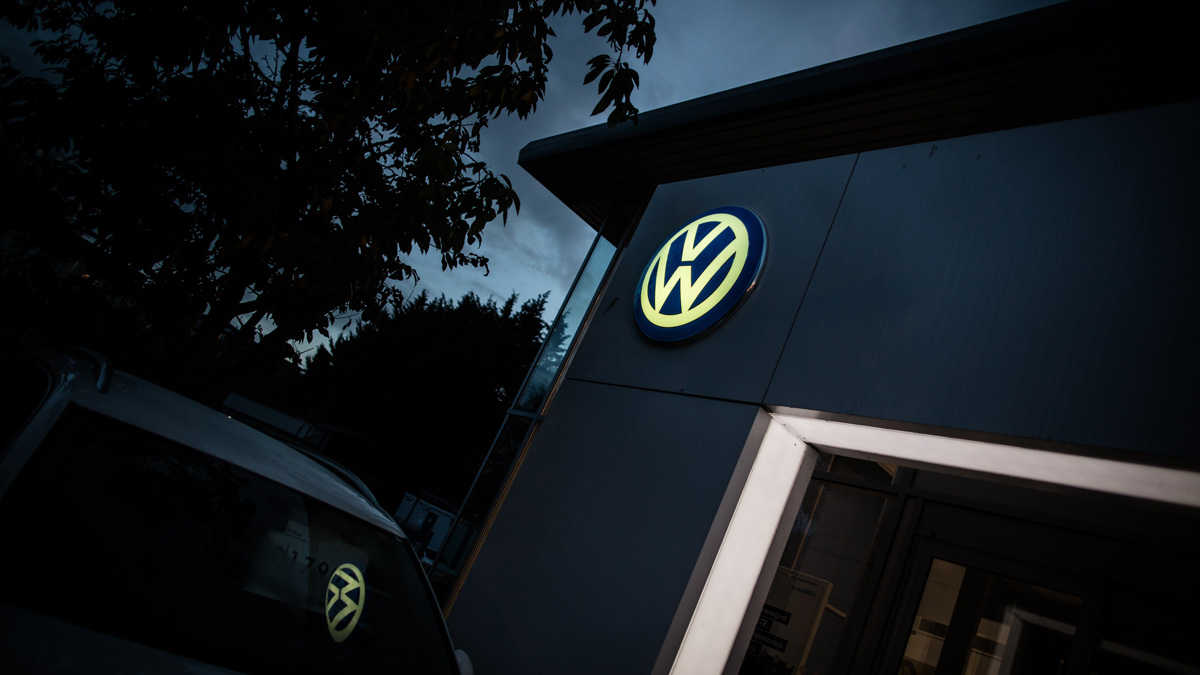
A free daily email with the biggest news stories of the day – and the best features from TheWeek.com
You are now subscribed
Your newsletter sign-up was successful
Volkswagen's fix for cars affected by the "Dieselgate" scandal has caused multiple problems for thousands of owners, a study has found.
A survey of 9,500 VW Group car owners found that 5,052 of them had issues with their car after their vehicle was fixed, UK law firm Harcus Sinclair.
Of those, 2,706 experienced a drop in fuel economy and 2,088 claimed their car had a reduction in power and acceleration.
The Week
Escape your echo chamber. Get the facts behind the news, plus analysis from multiple perspectives.

Sign up for The Week's Free Newsletters
From our morning news briefing to a weekly Good News Newsletter, get the best of The Week delivered directly to your inbox.
From our morning news briefing to a weekly Good News Newsletter, get the best of The Week delivered directly to your inbox.
Harcus Sinclair also says 739 owners reported their vehicle going into "limp mode", where it suddenly loses power and can only move at very low speeds.
The law firm's findings were also reflected by the BBC's Watchdog show, which aired an episode on Dieselgate last night.
Responding to the programme, Volkswagen said: "In the UK, the Volkswagen Group has implemented the technical measures in more than 720,000 vehicles and in over five million vehicles across Europe.
"To be clear, there is no systemic problem. The overwhelming majority of our customers have been fully satisfied."
A free daily email with the biggest news stories of the day – and the best features from TheWeek.com
Cars affected by Dieselgate include 1.2, 1.6 and 2.0-litre diesel-engined vehicles produced by Audi, Skoda, Seat and VW between 2009 and 2015, says The Guardian.
Most of these were fixed with "a simple software upgrade", adds the newspaper, but some, such as those with 1.6-litre engines, have required "major work."
Harcus Sinclair has since "filed a lawsuit against the VW Group on behalf of more than 40,000 affected owners in the UK", says AutoExpress.
Volkswagen scandal: $850bn Norwegian oil fund to sue
16 May
Norway's sovereign wealth fund – the world's largest – is said to be planning legal action against Volkswagen over the carmaker's recent emissions scandal, says the Financial Times.
The £592bn oil fund, which is the Volkswagen group's fourth largest shareholder, told the FT that it would "take legal action against VW in German courts by seeking to join one of the class-action lawsuits being prepared there."
Petter Johnsen, chief investment officer for equity strategies at Norges Bank Investment Management, the manager of the oil fund, said:
"We have been advised by our lawyers that the company's conduct gives rise to legal claims under German law. As an investor it is our responsibility to safeguard the fund's holding in Volkswagen."
The fund holds a 1.64 per cent stake in Volkswagen's ordinary voting shares and is the biggest investor without a seat on the company's supervisory board. At the end of last year, its holding was worth £522 million.
The FT says that the fund's "gripe" is largely down to how Volkswagen has responded to details of its emissions cheating going public since the scandal became news last September. It is estimated that the fund has suffered hundreds of millions of dollars in losses on its investment and is seeking compensation for this damage.
The BBC says that Volkswagen has put aside some €16.2 billion to deal with the fallout from the scandal. The company also faces action from the US Department of Justice and the Federal Trade Commission, as well as many of its own dealers.
Last month, Volkswagen reached a multi billion dollar deal with US Government authorities to buy back or fix cars affected by the scandal in the United States – roughly half a million vehicles – while also setting up a compensation package for American consumers.
VW Scandal: Company to buy back affected cars in US
22 April
Volkswagen has agreed to buy back 500,000 diesel cars fitted with defeat devices in the US as part of its multi-billion-dollar settlement over the scandal.
The company introduced the software to its vehicles in 2005 to get around stringent Californian emissions laws. It has since sold more than 600,000 cars fitted with the software in the United States and in excess of 11 million worldwide.
Fine details of the agreement have yet to be announced, but the company has offered to purchase all the 500,000 2.0-litre cars involved in the scandal.
As well as this, Autocar cites "unconfirmed reports" that the affected owners will each be entitled to $5,000 (£3,500) compensation and that VW will remove the defeat device free of charge.
According to the BBC, the company will also be made to pay into an environmental fund and "commit money to promote green car technology".
VW set aside around £8bn to deal with the fallout from the scandal, but some now wonder if the company will be left to dig a little deeper into its pockets in order to make up fully for the deception.
There have also been questions raised as to whether European consumers have been snubbed.
According to the Daily Telegraph, VW hasn't offered European drivers compensation because fixing many of the affected cars requires only a quick software update, an approach that wouldn't work on US cars.
According to the paper, news of compensation for US consumers has only strengthened the resolve of lawyers representing VW owners in countries such as Britain, Germany, and France who feel entitled to substantial financial compensation.
Volkswagen faces £2.5bn lawsuit from investors
15 March
Volkswagen is facing a €3.3bn (£2.6bn) lawsuit from investors who claim the company breached its stock market duties by taking too long to disclose information about the ongoing diesel emissions scandal.
"Law firm TISAB said the German lawsuit claims VW neglected to keep the markets properly informed between June 2008 and 18 September, 2015," reports The Guardian.
The lawsuit was filed on Monday in Braunschweig region court and marks the "steepest legal challenge that VW has faced in Germany since news of the scandal broke", says The Verge.
According to Bloomberg, 278 institutional investors from around the world are involved in the action, which was necessary because "Volkswagen persistently denies any settlement negotiations and also refuses to waive the statute-of-limitation defence until now," said lawyer Andreas Tilp.
Bloomberg adds that Volkswagen faces a "multitude of lawsuits in the US as well as criminal probes in various countries" and that a secondary lawsuit from around 20 other investors seeking more than €1bn (£748m) is on the cards.
A VW spokesperson declined to comment to Bloomberg in regards to the lawsuit until the firm has seen a copy of the complaint, though the company has argued that its reactions were "timely and in line with rules" in response to other lawsuits pending at the court.
Meanwhile, the Wall Street Journal reports that a former employee has filed a lawsuit against the car giant accusing it of illegally deleting documents related to the scandal days after being accused of using defeat devices by the US Environmental Protection Agency.
Volkswagen's US boss steps down with 'immediate effect'
10 March
Volkswagen's top US executive has stepped down with "immediate effect", almost six months since the company became embroiled in the emissions scandal.
Michael Horn, who had been president and chief executive of VW America since 2014, was leaving "through mutual agreement", said a statement from the firm.
It was Horn who said the company had "totally screwed up" after news broke of VW's use of defeat devices to cheat emissions tests last year. However, the statement announcing his departure made no reference to the scandal.
According to Bloomberg, the executive had been a "public face for the brand, apologising repeatedly at auto shows and other events" and that his popularity meant even independent dealers lobbied for him to remain in the job after the scandal was revealed, saying his removal would be "catastrophic".
In October, Horn told a US congressional committee the defeat devices were the work of a handful of rogue engineers and not VW's top brass – a claim now being brought into question as evidence that company bosses had been notified of the cheating as far back as 2014 is mounting.
Around 11 million Volkswagen group diesel passenger cars globally are believed to have been fitted with the device since its introduction in 2005, with 600,000 affected vehicles in the US. VW is continuing to negotiate with US environmental agencies, the Department of Justice and lawyers representing car owners on how to correct the situation.
According to Reuters, a "top California official" has said the company may only be able to offer a partial solution and may have to pay to mitigate the damage done by allowing vehicles polluting up to 40 times the legal limits on Californian roads.
Autocar adds the threat of the car-maker having to buy back affected vehicles is becoming "increasingly likely".
Hinrich Woebcken, who was appointed head of VW in the US in January, will replace Horn on an interim basis.
Volkswagen boss informed of cheating in 2014
03 March
Volkswagen's former boss, Martin Winterkorn, was told of the problems with US diesel emissions tests in 2014 – a year before the scandal went public, the car-maker has admitted.
In a statement, VW said the issue "did not receive particular attention at the management levels", despite the then chief executive receiving a memo in May 2014 about a study raising questions as to whether the group's diesel cars were emitting more pollutants in real world driving than in official tests.
"Whether and to which extent Mr Winterkorn took notice of this memo at that time is not documented," the statement said.
According to the Daily Telegraph, Winterkorn received a second memo the following November and attended a meeting in July 2015 where diesel emissions were on the agenda, although it is not clear whether he knew of the cheating at the time.
Volkswagen stresses that his workload meant he could have easily missed any documents hinting at a defeat device.
The revelations are a radical departure from VW's initial line that a handful of rogue engineers in the US engine development department were to blame.
According to the Financial Times, the "key question is whether the new version of events will withstand future revelations better than did the previous one".
Volkswagen's initial account of the scandal "caved in under its inherent weaknesses" and has been debunked by stacks of evidence suggesting management was well aware of the emissions rigging.
The paper reckons the latest twist almost leaves VW "pleading ignorance" and that the top brass was unaware defeat devices could breach US law or how severe the penalties could be.
Comedian crashes VW presentation over Dieselgate
02 March
Volkswagen received an unwelcome reminder of its emissions scandal at the Geneva Motor Show – but not in the form of harsh questions from the media. Instead, it was a British prankster who grabbed the attention of the world's automotive press.
The joker gatecrashed VW executive Juergen Stackmann's presentation of the company's electrical Up! car, making his way to the stand dressed in VW overalls, holding a spanner and a crudely labelled "cheat box".
[[{"type":"media","view_mode":"content_original","fid":"91745","attributes":{"class":"media-image"}}]]
"I have this new cheat box. No one is going to find out about this one," he said, before reaching underneath the new car to fit it.
The Verge called the awkward exchange that followed "amazing", as Stackmann tried to keep control before security arrived - the prankster saying: "Mr Muller [VW chief executive Matthias] said it's OK as long as no one finds out about it," as he was escorted off the stage.
The Daily Telegraph identified the man as British comedian Simon Brodkin, who has a reputation for pulling off high-profile pranks.
Last July, he infiltrated Fifa headquarters in Zurich to throw a stash of dollar bills over outgoing president Sepp Blatter in protest at the alleged corruption in world football. The previous year, he attempted to join the England squad at Luton airport ahead of their 2014 World Cup. He has also joined Kanye West on stage at Glastonbury and made a surprise appearance during a live episode of The X Factor.
Meanwhile, at Geneva, Volkswagen boss Muller warned the firm's deal with US authorities to end the emissions scandal could take longer than expected.
Saying he was "impatient" for answers, he told the BBC the €6.7bn (£5.2bn) set aside to cover the full cost may not be enough.
Muller added that that VW's internal inquiry into the scandal should be ready in April.
Volkswagen pressured to make electric cars in US
23 February
Volkswagen could be pressured into making electric cars in the United States as penance for cheating of emissions tests, according to reports in the media.
The German newspaper Welt am Sonntag reports that part of VW's terms with the Environmental Protection Agency (EPA) could include a provision to manufacture electric cars and invest in a nationwide infrastructure of charging stations.
According to Time magazine, the request could come at a bad time for the company. Electric and hybrid cars have not been selling so well in the US as motorists take advantage of cheap petrol prices stemming from "a brimming supply of crude oil".
But such a punishment could benefit the company in the long run, they add. If an industry giant such as VW is forced into vast amounts of electric car investment, it will surely pay dividends when the vehicle really breaks into the mainstream.
Fortune adds that according to the reports, the EPA has even gone so far as to suggest which of VW's US plants should be reserved for making the vehicles, although it's not clear if the authorities actually want the company to produce an all-new line of cars.
Meanwhile, the situation for Volkswagen in the US is dragging on.
An initial plan to fix the 600,000 cars affected in the emissions test cheating was rejected by authorities and the EPA is still in talks with the company over how to make things right.
US customers affected have meanwhile been offered $500 (£354) in cash or credit from the industry giant.
In a statement to Reuters, a VW spokesperson said: "Talks with the EPA are ongoing and we are not commenting on the contents and state of the negotiations". The EPA declined to comment.
The suggestion resembles the call from Tesla chief executive Elon Musk that US authorities should force Volkswagen to become an electric car company as a way of making up for cheating emissions tests.
Volkswagen bosses 'knew about cheating in May 2014'
15 February
Volkswagen's managers – including former chief executive officer Martin Winterkorn – allegedly knew as early as May 2014 that US regulators could investigate the emissions testing software in some of its vehicles.
Reuters reports that a high-ranking employee sent senior managers a warning letter on the issue more than a year before the group admitted, in September 2015, to rigging emissions tests. The claim raises "questions about how much senior managers knew about the scandal".
Initially, blame for the cheating was squared solely at the feet of a small number of "rogue engineers" and it was believed that high-ups within the company were oblivious to the use of a defeat device.
However, the employee who penned the letter had the internal nickname of "Winterkorn's fireman" and to some, this now casts doubts on the claims of VW's top brass.
The former chief executive resigned from his post in September 2015, not long after the emissions scandal had gone public. "I am doing this in the interests of the company even though I am not aware of any wrongdoing on my part," he said at the time.
Speaking to Reuters, a Volkswagen spokesperson said the company "does not comment on ongoing investigations" and that VW's internal report into the scandal is due in the second half of April.
Representatives for Winterkorn were not available for contact, they added.
Volkswagen emissions cheating was 'an open secret'
26 January
Volkswagen's development of a defeat device to cheat emissions tests was an open secret in the company's engine development department, say reports in the German press.
The reports claim that VW management and other personnel had knowledge of the device's use and intent in 2006, a year after the company first introduced it onto production cars during a push to sell more diesel vehicles in the United States.
"The making of the defeat device hence became an open secret among managers and staff in the department responsible and this is contrary to earlier claims of rogue engineers acting against VW's orders," says Auto Express.
Autoblog says the news could be revealed publicly in VW's as-yet-to-be released internal investigation and might render obsolete the car-maker's initial estimate that between ten and 30 people are responsible for the scandal.
Management within VW's engine development department "openly discussed" the installation of the device as far back as 2006, says Reuters. It also reports that in 2011, a whistleblower, who is now giving evidence to the investigators, raised the issue with a senior manager outside the department. It is claimed the manager did not respond.
The "open secret" was allegedly compounded by the corporate culture within the company. The report claims that failure was not an option and that managerial pressures to enter the US market with a cost-effective solution kept changes from happening, despite workers and engine-department managers knowing the device was being used to cheat emissions tests.
"Instead of coming clean to the management board that it cannot be done, it was decided to commit fraud," says German newspaper Sueddeutsche Zeitung.
A Volkswagen spokesperson declined to comment to Reuters on the "speculation" and re-affirmed that the company's internal investigation was ongoing.
The inquiry is to be presented at the annual shareholders meeting on 21 April, according to Bloomberg, who say the VW Group has been set a deadline by its second-biggest shareholder, the prime minister of Lower Saxony, to set out a "complete clarification".
Volkswagen's US recall proposals rejected
13 January
US regulators have rejected Volkswagen's plans to recall those diesel cars fitted with devices designed to cheat emissions tests.
The California Air Resources Board (Carb) said the car-maker's proposals did not "adequately address overall impacts on vehicle performance, emissions and safety" and were not planned over a suitable or quick enough timescale.
They added that VW's planned fix was "incomplete, substantially deficient and falls far short of meeting the legal requirements".
The state of California has sent the company a detailed confidential letter outlining why the proposals have been rejected. It also reaffirmed its commitment to the ongoing investigation into the scandal and its desire to talk with Volkswagen and find a solution, reports Reuters.
"Volkswagen made a decision to cheat on emissions tests and then tried to cover it up," said Carb chairman Mary Nichols.
"They continued and compounded the lie and when they were caught they tried to deny it. The result is thousands of tons of nitrogen oxide that have harmed the health of Californians. They need to make it right."
In response, Volkswagen said: "Today's announcement addresses the initial recall plans Volkswagen submitted to Carb in December. We are committed to working co-operatively with Carb and other regulators and we plan to continue our discussions tomorrow when we meet with the [Environmental Protection Agency]."
Despite not being huge for Volkswagen, the US market is proving difficult for the company in the wake of the scandal. Although only 600,000 of the 11 million cars affected worldwide were in the US, it was their authorities who first broke news of the emissions rigging scandal.
It is also where the first defeat devices were fitted after a push to sell more diesel vehicles in 2005 ended in engineers not having the time to properly develop engines that met strict Californian emissions laws.
American owners are to receive a "goodwill" package as a result of the scandal, unlike UK drivers, whom Autocar says will receive no compensation.
Continuing their buttering up of US customers, VW chief executive Matthias Muller issued a "lengthy apology" to the American people during his keynote speech at the Consumer Electronics Show in Las Vegas earlier this month, says The Drum.
Volkswagen could face £61bn fine in US lawsuit
05 January
The US Department of Justice has filed the opening lawsuit against Volkswagen, alleging that almost 600,000 VW, Porsche and Audi cars in the United States were fitted with illegal defeat devices, resulting in excessive harmful emissions.
Volkswagen could now face enormous fines. Reuters reports that in theory, the total could exceed $90bn (£61bn) if the maximum $37,500 (£25,500) fine per car in violation of the law is enacted.
The touted total vastly exceeds the "in excess of $18bn" first predicted in September 2015, when the emissions scandal broke.
To win its civil case, the US government does not need to prove the degree of intentional cheating at Volkswagen, just that the deception occurred.
The complaint, filed by the Department of Justice on behalf of the Environmental Protection Agency, alleges that VW group's actions not only caused "emissions to exceed its standards", but also violated the Clean Air Act "by selling, introducing into commerce, or importing into the United States motor vehicles that are designed differently from what Volkswagen had stated in applications for certification", says Autocar.
The magazine adds that the company is believed to be arguing that the maximum fine would "cripple" it and that its future depends on the courts showing leniency.
The Justice Department is also investigating criminal fraud allegations against Volkswagen for misleading the US regulators as well as VW customers, though such cases cannot be brought to court as easy as civil lawsuits and require more burden of proof. The Wall Street Journal says the civil lawsuit is unlikely to be the end of the US government's pursuit of VW, but rather an opening move which could pave the way for other legal actions.
Volkswagen has already set aside $7bn (£4.6bn) to cover the costs incurred by a large-scale recall programme of vehicles fitted with the emissions defeat devices which is scheduled to run through 2016. Worldwide, around 11m diesel-engine VW group cars are affected in the scandal worldwide.
Elon Musk: force Volkswagen to become a zero emissions car company
21 December
Elon Musk, CEO of the California-based premium electric car company Tesla Motors, has signed a letter to Californian emissions regulators urging them to scrap plans to force VW into fixing cars affected by the emissions scandal.
Instead, Musk and other signatories argue that the cash and resources should be used to turn Volkswagen into a zero-emissions car company.
The letter was signed by over 40 businesspeople and CEOs in the clean energy industry, as well as environmental activists.
The letter argues that car companies' never ending pursuit of even cleaner and more efficient diesel engines is reaching "the point of de miminis returns." It also adds that it is no surprise that VW had to cheat to meet emissions levels and that "meeting future tighter diesel standards will prove even more fruitless."
"A giant sum of money thus will be wasted in attempting to fix cars that cannot all be fixed", states the letter, before laying out a five point plan releasing VW from its current obligations to recall and fix cars, and instead force VW down the route of accelerating the introduction of zero emissions vehicles.
A part of the proposal also suggests that Volkswagen invest in new manufacturing plants and research to the same amount "that they otherwise would have been fined."
"In contrast to the punishments and recalls being considered, this proposal would be a real win for California emissions, a big win for California jobs, and a historic action to help derail climate change – we strongly urge CARB to consider this proposal in resolving the VW cheating scandal", it concludes.
Newsweek reports that the California Air Resources Board declined to directly address the letter.
It comes not long after Volkswagen made large changes to its management structure, according to the Wall Street Journal.
VW announced changes to the structure of the Volkswagen group in the hope of decentralising power and delegating more responsibility to individual brands, in an early December press conference.
European Union to investigate Volkswagen
17 December
The European Union is to hold an inquiry into the Volkswagen emissions scandal.
According to Sky News, the wide-ranging inquiry could last up to a year, and will investigate whether auto industry regulators were too "hands-off" amid claims that EU regulators ignored suspicious emission levels.
The committee of 45 MEPs will also investigate alleged breaches of EU law, and "maladministration".
Olaf, an arm of the European Commission, will investigate Volkswagen regarding the misuse of loans provided by the European Investment Bank (EIB), a person "familiar with the matter" told the Financial Times. The EIB has provided Volkswagen with €4.5bn in loans since 1990, €1.9bn of it currently outstanding. The EIB has said that these loans were provided to help VW develop and improve "environmental performance".
Volkswagen is currently under investigation from the US Department of Justice and the Environmental Protection Agency, after the scandal was first uncovered in the United States.
The emissions scandal involves up to 11 million diesel engine Volkswagen group cars, each fitted with a defeat device that can detect when the car is undergoing an emissions test, switching the car into a special mode, which provides deceiving emission levels.
Last week at a press conference in Wolfsburg, the chairman of the VW Group's Supervisory Board, Hans Dieter Pötsch, revealed that the scandal had its origins in a 2005 push by Volkswagen into the US diesel market.
VW's diesel engines could not meet the strict rules on nitrous oxide emissions in California, and Volkswagen had neither the time nor resources available to find a legitimate solution, so engineers fitted a defeat device.
A 'chain of errors' meant that this deception was repeated for several years.
Volkswagen reveals how emissions scandal began – details first findings of investigation
10 December
Volkswagen has held a press conference to detail the first findings of its internal investigation into the emissions scandal which has engulfed the automotive giant since September.
Speaking in Wolfsburg, New Chairman of the VW Group’s Supervisory Board, Hans Dieter Pötsch, and CEO Matthias Müller explained the origins of the scandal, the conditions which allowed it to happen, the future of the Volkswagen group, as well as new information for current owners.
When and why did VW begin to use the defeat device?
The defeat device was originally conceived as software to be used on cars sold in the USA. Potsch revealed how in 2005, VW planned a large push of new diesel cars in the US market. However, engineers did not have the time or resources to make the engines comply with California's tough nitrous oxide laws, so a defeat device was used.
From these beginnings, a 'chain of errors' meant the device was used to cheat emissions, and when a legitimate solution was found, it was not implemented to its full extent. Potsch told those in attendance that the scandal happened partly because of individual misconduct, but also flaws in VW group processes, and "an attitude in some units of the company that tolerated breaches of rules."
What next for owners of vehicles affected?
VW will compensate owners if a drop in resale value is triggered by the scandal, and will also pay for any increases in tax owners must pay as a result of the changes the impending recall will have on vehicles.
2.0 litre and 1.2 litre engines will receive a software update, but 1.6 litre engines will require component changes.
Most importantly, Muller confirmed that the changes will have a negligible effect on performance, emissions and economy. "customers won’t be able to feel it.” He told Auto Express.
The recall will begin in January with the most common 2.0 litre variant, with others coming in the second and third quarter of 2016 according to the Guardian. However, the company is still working on fixes to cars in the US market, where owners will also receive a compensation package.
What next for the VW Group?
During the press conference, it was announced that the Volkswagen group would undergo large scale restructuring. Individual brands within the VW Group stable should become more independent, and the company is determined to use the scandal as a "catalyst for change."
Muller said that the plan to de-centralise the group was always on the cards, but the emissions scandal has triggered Volkswagen to push forward with plans to change the company sooner rather than later. "We have not given up our claim of leadership in our industry," he said.
Autocar reports that the shift to the new group structure will begin early next year, with a full realignment by 2017.
The external report being carried out by law firm Jones Day will not be published until some time next year. Volkswagen say they are handling over 100 terabytes of data – the equivalent of 50 million books.
Regarding the investigation and the company's determination to right its wrongs, Potsch said "We are relentlessly searching for those responsible and they will be held to account.”
Volkswagen emissions scandal: only 36,000 vehicles are affected, VW says
09 December
Volkswagen has announced that the number of VW cars sold with false carbon dioxide emissions ratings was overestimated.
The company now says the number of cars sold with incorrect CO2 emissions represents 36,000 annually, down from the 800,000 first reported in November and representing 0.5% of the company’s yearly sales.
Nine different Volkswagen vehicles, each of them specific versions of certain models, make up the 36,000 cars with the wrong CO2 figures. Versions of the VW Polo, Jetta, Scirocco, Passat, Passat Alltrack and Golf are affected.
VW has announced that no fixes to the affected cars will be carried out as they are not necessary, and as a result the MPG figures for the cars sold with the wrong carbon emissions will not change.
The company also stated that "Only a small number of the model variants of new cars will have the catalogue (CO2) figure slightly adjusted" to reflect the findings of the investigation.
The nine model variants will undergo testing by an independent authority before the year is out, and anomalies will result in offending vehicles having their official figures re-adjusted, as well as VW subsidising owners if any subsequent changes result in cars moving to higher tax brackets, according to Auto Express.
Autocar reports that the Volkswagen group originally set aside €2 billion to deal with the issue of false CO2 figures, but it is unknown if this figure will be decreased as a result of the findings.
Volkswagen says the findings more or less conclude the petrol side of the emissions scandal, but it still remains that 11 million cars were sold with diesel engines fitted with defeat device software to cheat emissions tests, and UK sales were down 20 per cent in November.
Other Volkswagen stable brands, such as Audi, Skoda and Seat, will publish their own findings shortly.
VW 'could sell luxury brands' to fund Diesel-gate loan
08 December
The Volkswagen Group could be prepared to sell some off its luxury car brands to pay back a one-year loan of around €20bn, Reuters reports.
Volkswagen has told the banks supplying the credit line that it will sell its assets if no other way of repaying the loan is possible, according to two sources.
VW secured the €20bn loan earlier this week and plans to refinance it by issuing bonds, claim the sources.
If it came to selling assets, one of VWs likely divestments would be their MAN subsidiary. MAN is known for truck and lorry production but also makes diesel engines for ships and turbo-machinery.
It is likely that MAN's non-commercial vehicle production units would be sold first if VW needed to raise cash next year - and they have been valued at up to €5bn.
But the sources also say: "Volkswagen may also consider divesting luxury car brands Bentley and Lamborghini or motor bike brand Ducati."
These claims should be taken with "a pinch of salt," says Carscoops, which adds that VW is also cutting costs by eliminating certain trim levels from their cars. Indeed, one of Reuters's sources adds that VW's low-production luxury brands "don't really move the needle".
Autoblog, meanwhile, explains that the loan is "necessary as a buffer in case the automaker doesn't have enough money on hand to repair vehicles or settle upcoming fines".
The reports come as another big-name departure from the VW group is announced': Dr Ulrich Hackenberg, who - according to Top Gear - was "one of the most influential and prolific car engineers of the modern era", retired last week.
Volkswagen has "declined to comment", says Reuters.
Volkswagen sales slump by 20% in UK
04 December
Sales of Volkswagen cars in the UK have fallen 20 per cent, the latest figures from the Society of Motor Manufacturers & Traders show.
There were 12,958 registrations of new Volkswagen cars in the UK last month, in comparison to 16,196 in November 2014.
The fall reflects the UK reaction to VW's diesel emissions scandal, where over 11 million cars have been equipped with defeat devices in order to cheat emissions testing, almost 1.2 million of them in the UK.
Other Volkswagen group brands took a hit as well, with Seat down 24 per cent, Skoda down 11 per cent and Audi down four per cent, reports the BBC.
The drop follows reports signalling VW sales in the USA have also slumped by 25 per cent.
VW's UK sales dropped 10 per cent in October, but the November sales figures are the first true representation of UK consumers reactions to the scandal, given it can take a few weeks for car deliveries to happen, claims the Daily Mail.
Autocar said a Volkswagen spokesman responded to the dip by saying the company don't look at monthly fluctuations, but instead prefer to focus on the year as a whole, and they expect to be up on 2014 sales figures overall in 2015.
Better news came for Volkswagen in the shape of the Golf being the fourth-highest selling single car, delivering 4,336 in November.
Volkswagen sales down 25% in USA
2 December
Volkswagen has reported a 24.7 per cent drop in US sales for November, compared with the same month last year, as the damage done by the recent emissions scandal starts to take effect.
The news is the first real and clear sign of the "undoubtedly serious damage" the scandal has done to Volkswagen's reputation in America, says Wired.
VW sold fewer than 24,000 vehicles in the US last month, compared with 32,000 in November last year. The Passat and Golf models saw the sharpest decline, reports the BBC.
The sales drop is not accounted for by Volkswagen removing 2.0 litre TDi and 3.0 litre V6 powered models from US sale. According to Jalopnik, petrol powered VWs have suffered a nine per cent fall year-on-year in the USA.
The United States is not a large market for Volkswagen, but global sales in October were down by five per cent to 490,000 deliveries.
News of the emissions scandal first broke when US researchers found that Volkswagen deliberately cheated emissions tests by fitting cars with a 'defeat device', which can detect when the car is undergoing examination. Up to 11 million Volkswagen diesels are affected worldwide, and VW is in the process of beginning recalls to fix affected cars.
The drop in sales comes as the US auto industry looks forward to a record year, reports The Guardian, with carmakers expected to have sold 18.2 million cars to US customers in 2015.
-
 How the FCC’s ‘equal time’ rule works
How the FCC’s ‘equal time’ rule worksIn the Spotlight The law is at the heart of the Colbert-CBS conflict
-
 What is the endgame in the DHS shutdown?
What is the endgame in the DHS shutdown?Today’s Big Question Democrats want to rein in ICE’s immigration crackdown
-
 ‘Poor time management isn’t just an inconvenience’
‘Poor time management isn’t just an inconvenience’Instant Opinion Opinion, comment and editorials of the day
-
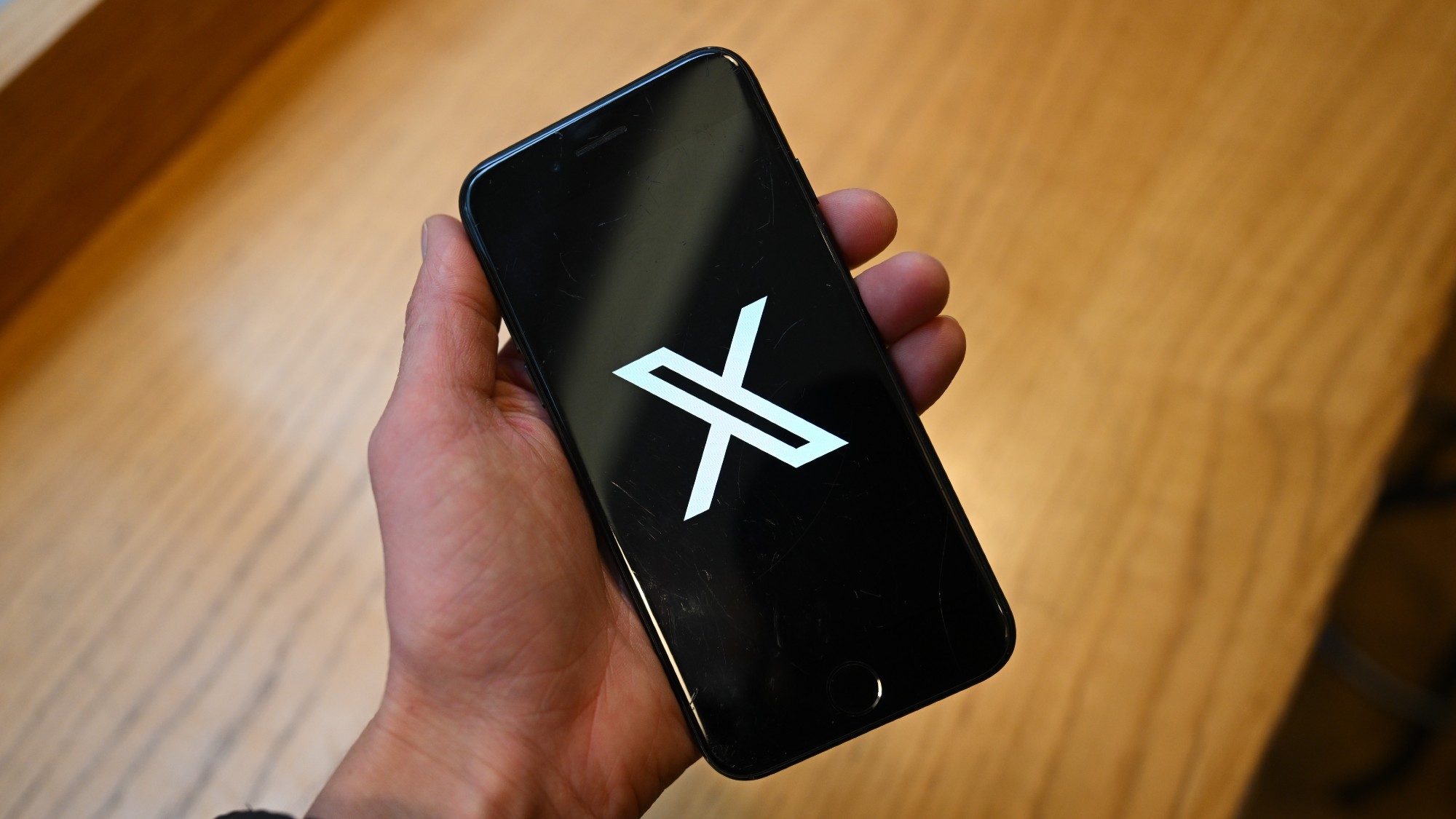 3 varied alternatives to X for when you simply cannot with the new iteration of Twitter
3 varied alternatives to X for when you simply cannot with the new iteration of TwitterThe Explainer These competing microblogging sites have struggled to catch up to Elon Musk's market behemoth
-
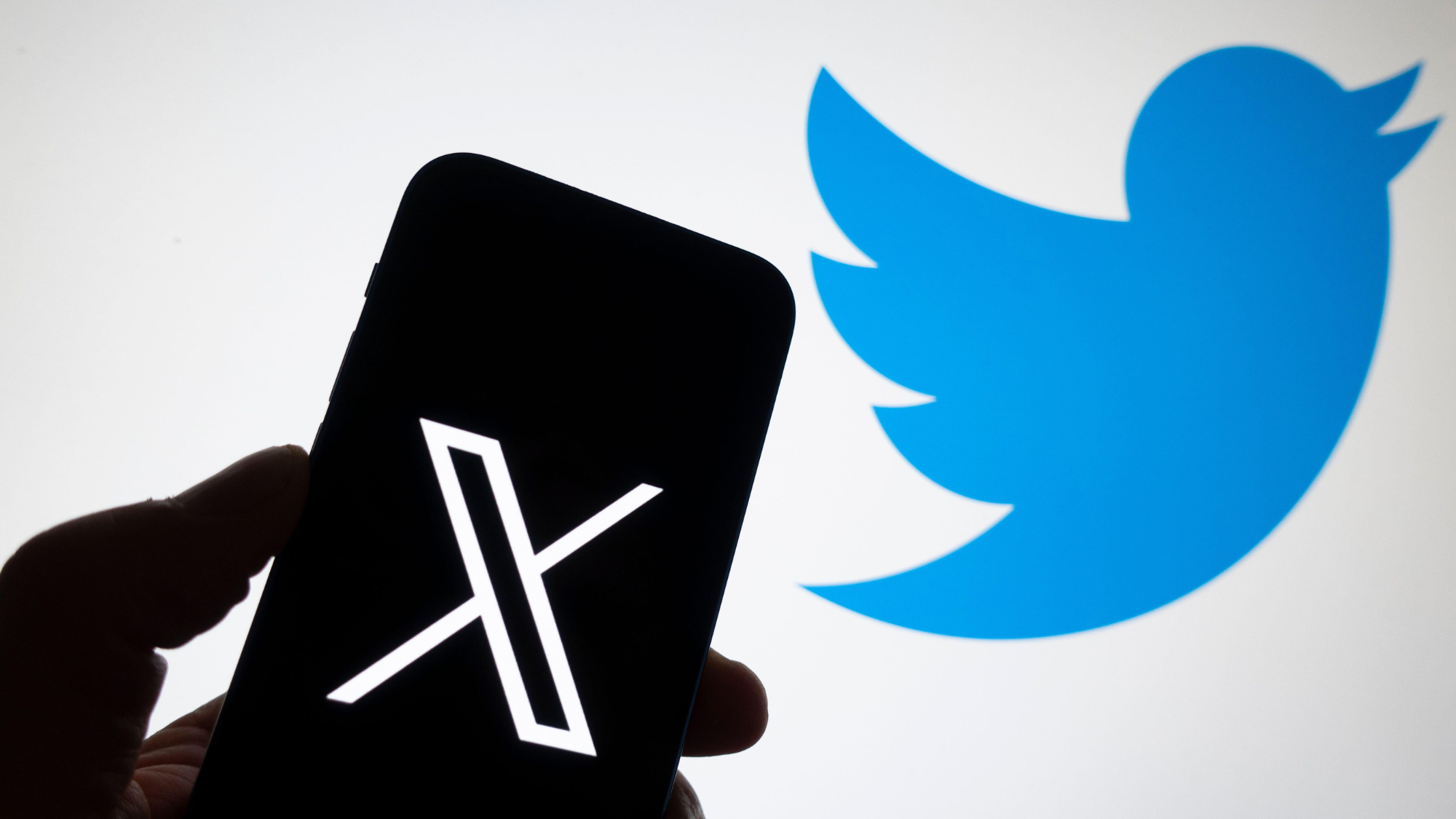 Twitter: Breaking the Bird – a 'riveting' documentary
Twitter: Breaking the Bird – a 'riveting' documentaryThe Week Recommends BBC2's 'fascinating' film charts the social media platform's fall from grace
-
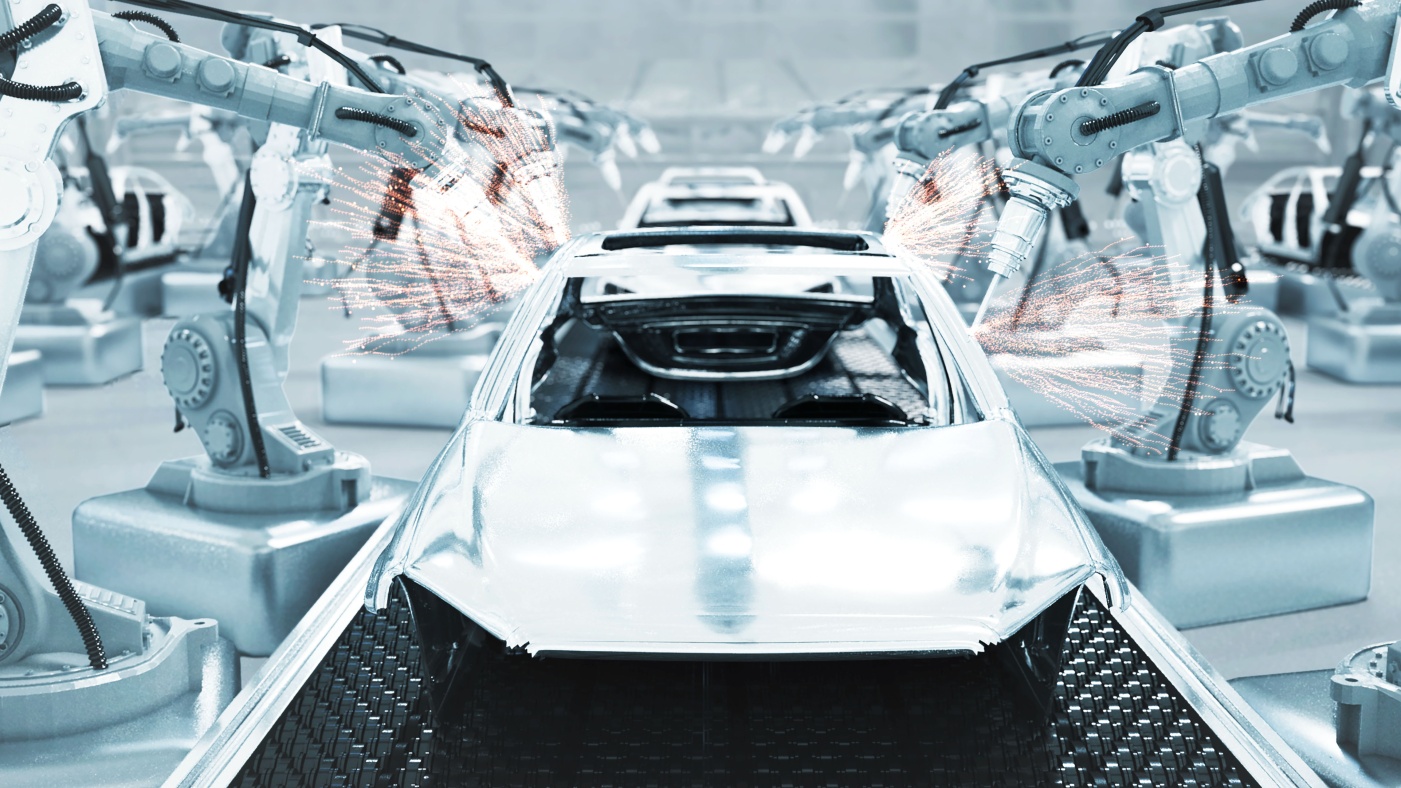 EV market slowdown: a bump in the road for Tesla?
EV market slowdown: a bump in the road for Tesla?Talking Points The electric vehicle market has stalled – with worrying consequences for carmakers
-
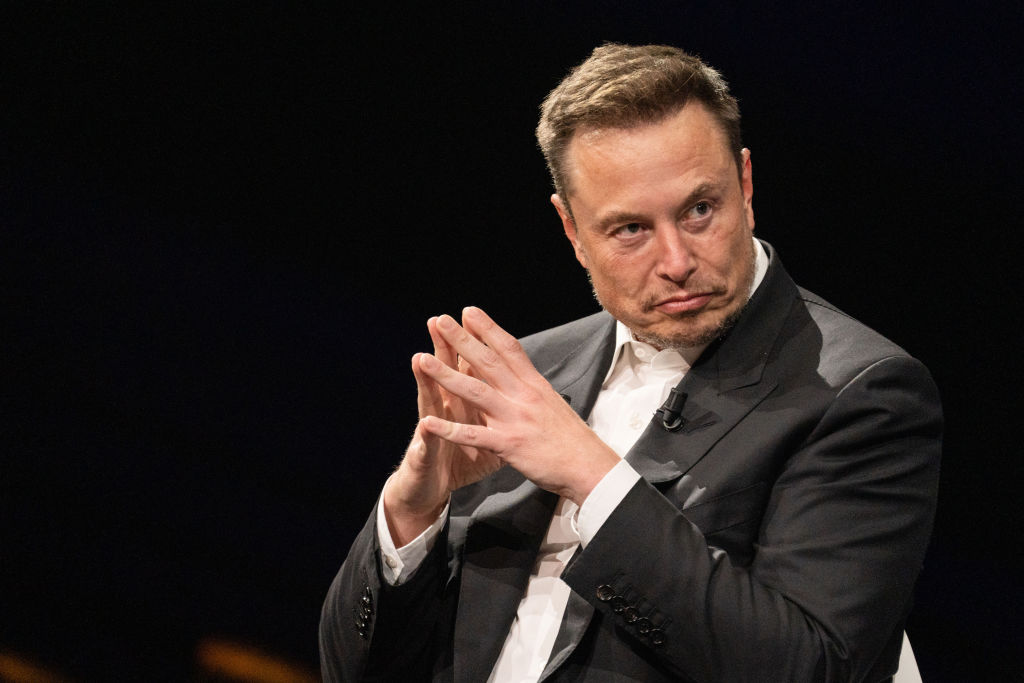 2023: the year of the billionaire villain
2023: the year of the billionaire villainThe Explainer The 21st-century Dr. Evil is taking over the world in books, TV series and popular culture
-
 From 'thunks' to mixed reality, the future of books is interactive
From 'thunks' to mixed reality, the future of books is interactiveThe Explainer What is in store for literature in an increasingly digital world?
-
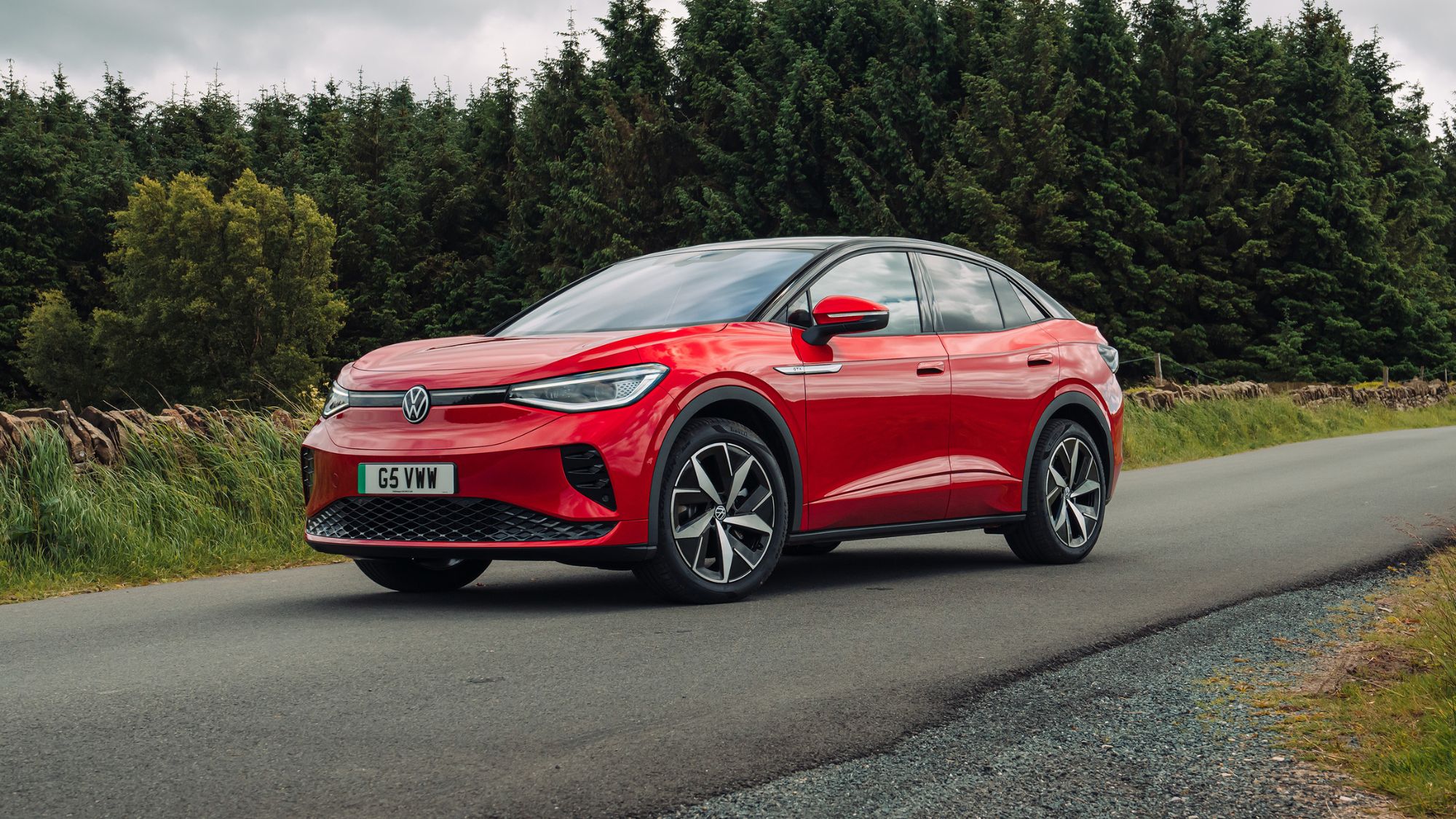 Volkswagen ID.5 review: what the car critics say
Volkswagen ID.5 review: what the car critics sayFeature The ID.4's 'sportier, more stylish twin' – but 'don't believe the hype'
-
 Walter Isaacson's 'Elon Musk' can 'scarcely contain its subject'
Walter Isaacson's 'Elon Musk' can 'scarcely contain its subject'The latest biography on the elusive tech mogul is causing a stir among critics
-
 VW ID Buzz review: what the car critics say
VW ID Buzz review: what the car critics sayfeature The new ID Buzz electric van is a modern successor to Volkswagen’s beloved Type 2